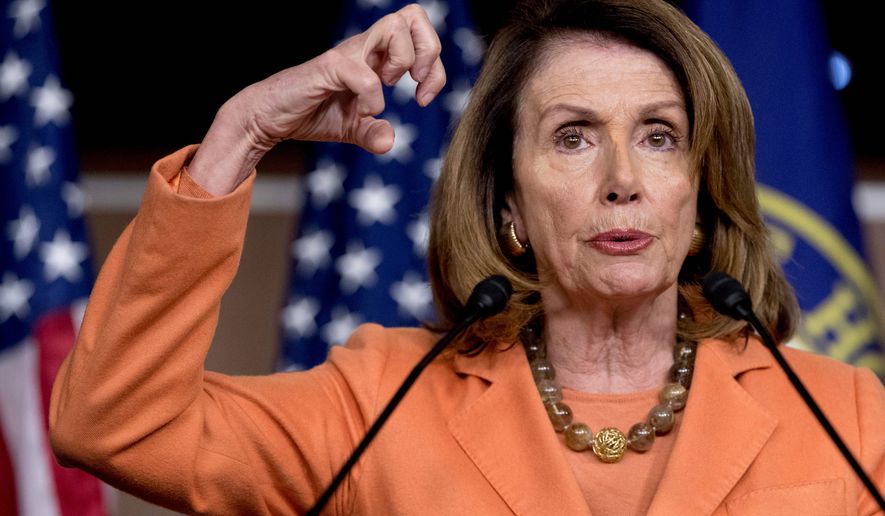With the release of a House GOP tax bill days away, Democrats and liberal groups are working overtime to mobilize their supporters to try to derail or delay Republicans’ next big-ticket agenda item.
Democrats say the GOP bill is a giveaway to the wealthy at the expense of the middle class, and liberal advocacy groups say they’re going to take that message to members’ districts in the coming weeks and months.
The Progressive Change Campaign Committee “will make sure there is political accountability back home in 2018 for Republicans who vote to cut taxes for millionaires and big corporations while cutting priorities like Medicare and public education,” said Stephanie Taylor, the group’s co-founder.
As part of the push, outside groups are trying to elevate prominent “millionaires and billionaires” to testify that they don’t need a tax cut.
Billionaire Nick Hanauer, an early outside investor in Amazon, recently penned an email blast to PCCC’s 1 million members urging them to contact Congress and tell members to vote against the GOP’s tax plan.
“I’m asking you — begging you really — to shame Trump and congressional Republicans for trying to give me a tax cut,” Mr. Hanauer said.
House Minority Leader Nancy Pelosi also is urging her colleagues to hold local events this weekend to highlight what Democrats see as the shortcomings in the GOP tax plan.
“Our Caucus must be fully mobilized to expose the ruinous consequences of Republicans’ plans to raise taxes on the middle class, especially as Republicans try to race their bill through the House before the American people can see the damage it will cause in their lives,” Mrs. Pelosi wrote in a recent “Dear Colleague” letter.
Both sides are busy arguing the merits of the GOP’s tax outline, which calls for slashing individual and corporate tax rates and streamlining the code by axing various deductions and exemptions.
But they’re also deeply aware of the political consequences if Republicans have another high-profile legislative failure after their yearlong effort to repeal Obamacare came up short, said GOP strategist Ford O’Connell.
“Nancy Pelosi essentially believes if the Republicans fail in this exercise that the Democrats are going to take back the House,” he said. “So they’re looking at this more [as] a political exercise than they are in terms of trying to better the American people.
“The [Democrats] smell blood in the water, and the [Republicans] know the stakes,” Mr. O’Connell said.
Relegated to the minority in both chambers of Congress, though, Democrats are essentially powerless to block anything if enough Republicans hang together.
Both chambers recently passed a 2018 budget blueprint that unlocks a fast-track tool, known as reconciliation, that will allow Republicans to pass their tax package with simple majorities in the House and Senate, bypassing the need for support from the other party.
“It’s most likely going to be done by [Republicans], and they’re going to have to find a way to come together even if some of them have to take a tough vote,” Mr. O’Connell said.
But Democrats can try to drive wedges between GOP factions and hope for a repeat of the health care process, in which Senate Republicans ultimately couldn’t coalesce around a plan after it took the House months to come to an agreement.
Democratic leaders have been arguing that the Republican tax plan will explode federal deficits — historically a top concern for conservative budget hawks. And Mrs. Pelosi and others have hammered the GOP’s plans to ax a deduction for state and local taxes paid — a sensitive issue for many blue-state Republicans.
GOP leaders took somewhat of a hit over the weekend when the National Association of Home Builders announced it will oppose the Republican tax plan, with the group saying it’s concerned that there won’t be sufficient incentives to protect homeownership.
“When groups start rallying, when they start rallying against things and they succeed, everything starts unraveling,” Sen. Bob Corker, Tennessee Republican, said Sunday on CBS’ “Face the Nation.”
“Let the tax writers do their job. If you start taking things off the table on the front end, we’re not going to get where we need to go,” Mr. Corker said.
Though President Trump and congressional Republicans are the top targets, groups like PCCC also are keeping pressure on moderate Democrats to try to quash any potential dissenters.
Rep. Tim Ryan, an Ohio Democrat who challenged Mrs. Pelosi for her leadership role last year, recently talked up lowering the corporate tax rate, which is one of Republicans’ top tax priorities. But that quickly earned him the wrath of the liberal group, which said it plans to push back on “corporate Democrats like Ryan who side with Republicans on this.”
Several weeks later, Mr. Ryan wrote an op-ed in The Hill newspaper that hewed more closely to his party line, stressing a need to “hold corporations accountable” and ensure the middle class isn’t picking up the slack.
Other Democrats up for re-election in red states likewise haven’t embraced a GOP plan they say is still under wraps and crafted with virtually no involvement from Democrats.
“It’s really hard for somebody like me to negotiate on this tax bill when we don’t know what it is,” Sen. Claire McCaskill, Missouri Democrat, said Sunday on NBC’s “Meet the Press.”
“It’s hard for me to take seriously that they want Democrats to participate when they won’t show us the bill,” she said.
Liberal groups devoting energy to target red-state Democrats doesn’t necessarily hurt their cause, Mr. O’Connell said.
“The only risk here is that they could be helping Republicans unify their ranks,” Mr. O’Connell said. “If you’re a moderate Democrat, you’re going to do at the end of the day what you think is best in terms of getting re-elected.”
• David Sherfinski can be reached at dsherfinski@washingtontimes.com.




Please read our comment policy before commenting.